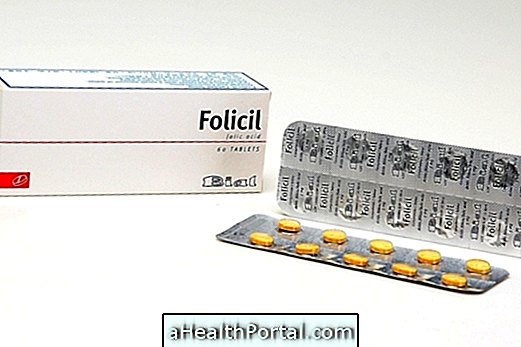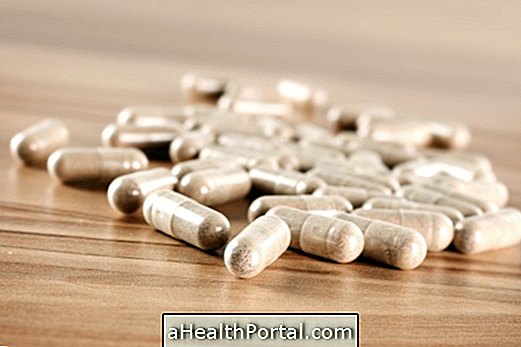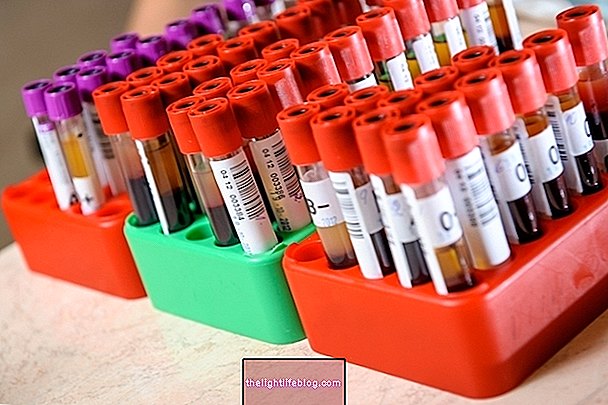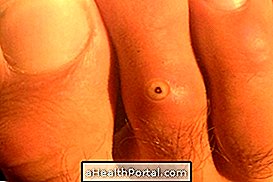The main function of vitamin D in the body is to facilitate the absorption of calcium by the body, which is essential for the healthy development of bones and teeth. In addition to improving bone health, vitamin D prevents diseases such as obesity and diabetes.
Vitamin D is important for regulating bone metabolism, and acts as a hormone by keeping calcium and phosphorus present in the proper amounts in the blood by increasing or decreasing the absorption of these components in the small intestine.
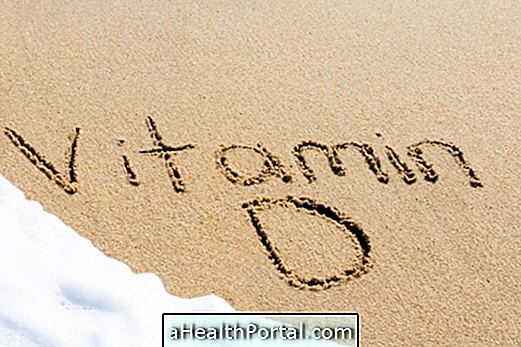
Functions of Vitamin D
The functions of vitamin D in the body are:
- Increase the absorption of calcium and phosphorus in the gut;
- Strengthen bones and teeth, making them healthier;
- Prevent diseases such as obesity, diabetes, hypertension and multiple sclerosis;
- Increase the production of muscles;
- Improve balance;
- Strengthen the immune system;
- Improve cardiovascular health;
- Prevent some types of cancer, such as colon, rectum and breast;
- Prevent premature aging.
The benefits of vitamin D are obtained through the regular consumption of foods rich in this vitamin and sun exposure, which activates the production of vitamin D in the skin.
Where to find vitamin D
Vitamin D can be found in foods like fish, seafood, cod liver oil, egg yolk and milk and dairy products. Check out a list of foods rich in vitamin D.
Another natural source of vitamin D is its production in the skin from exposure to the sun's rays. Therefore, to produce adequate amounts of vitamin D, light-skinned people should stay in the sun for at least 15 minutes a day, while black-skinned people need about 1 hour of sun exposure daily.
In addition to natural sources, vitamin D can also be found in the form of capsule or drops supplements, which should only be used in cases of vitamin D deficiency. The amount of supplement to be taken varies according to age, dose of medicine and degree of vitamin deficiency, and children and pregnant women should only take vitamin D supplement according to medical advice. See more in Vitamin D Supplements.


Daily need for vitamin D
The required amount of vitamin D per day varies with age:
- Children up to 1 year: 10 mcg;
- Children older than 1 year and adults: 15 mcg;
- Elderly people over 70 years: 20 mcg;
- Pregnant women: 15 mcg.
In general, only food is not sufficient to meet the daily needs of vitamin D, so it is important to have daily sun exposure to have adequate vitamin D production. The lack of vitamin D in the body is identified through a blood test called 25 (OH) D, and the diagnosis of deficiency is done when you have results below 30 ng / ml.
Symptoms of vitamin D deficiency
The symptoms of vitamin D deficiency in the body are:
- Decreased calcium and phosphorus in the blood;
- Muscle pain and weakness;
- Weakening of bones;
- Osteoporosis in the elderly;
- Rickets in children;
- Osteomalacia.
Absorption and production of vitamin D are impaired in some diseases, such as kidney failure, lupus, Crohn's disease and celiac disease. See more in: Signs that may indicate lack of vitamin D.
Consequences of excess vitamin D
The consequences of excess vitamin D in the body are weakening of bones and elevated levels of calcium in the bloodstream, which can lead to kidney stones and cardiac arrhythmia.
The main symptoms of excess vitamin D are lack of appetite, nausea, vomiting, increased urinary frequency, weakness, high blood pressure, thirst, itchy skin and nervousness. However, excess vitamin D only occurs due to the overuse of supplements of this vitamin.
